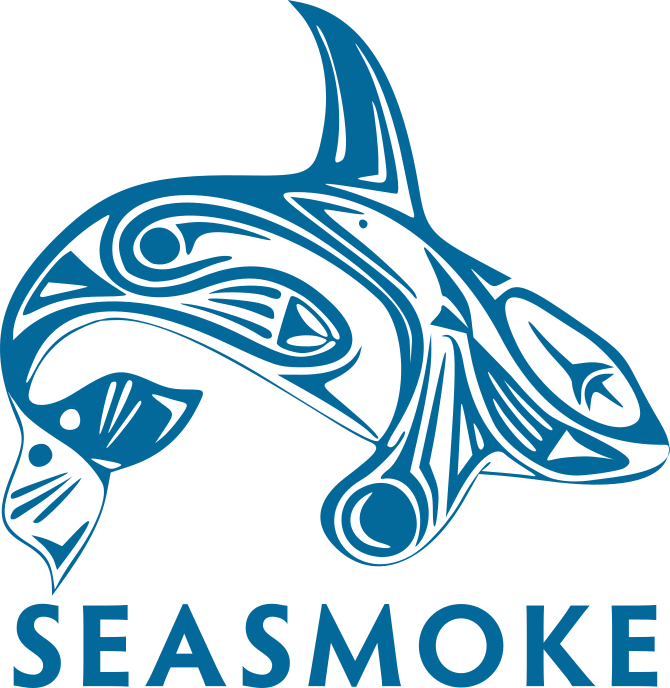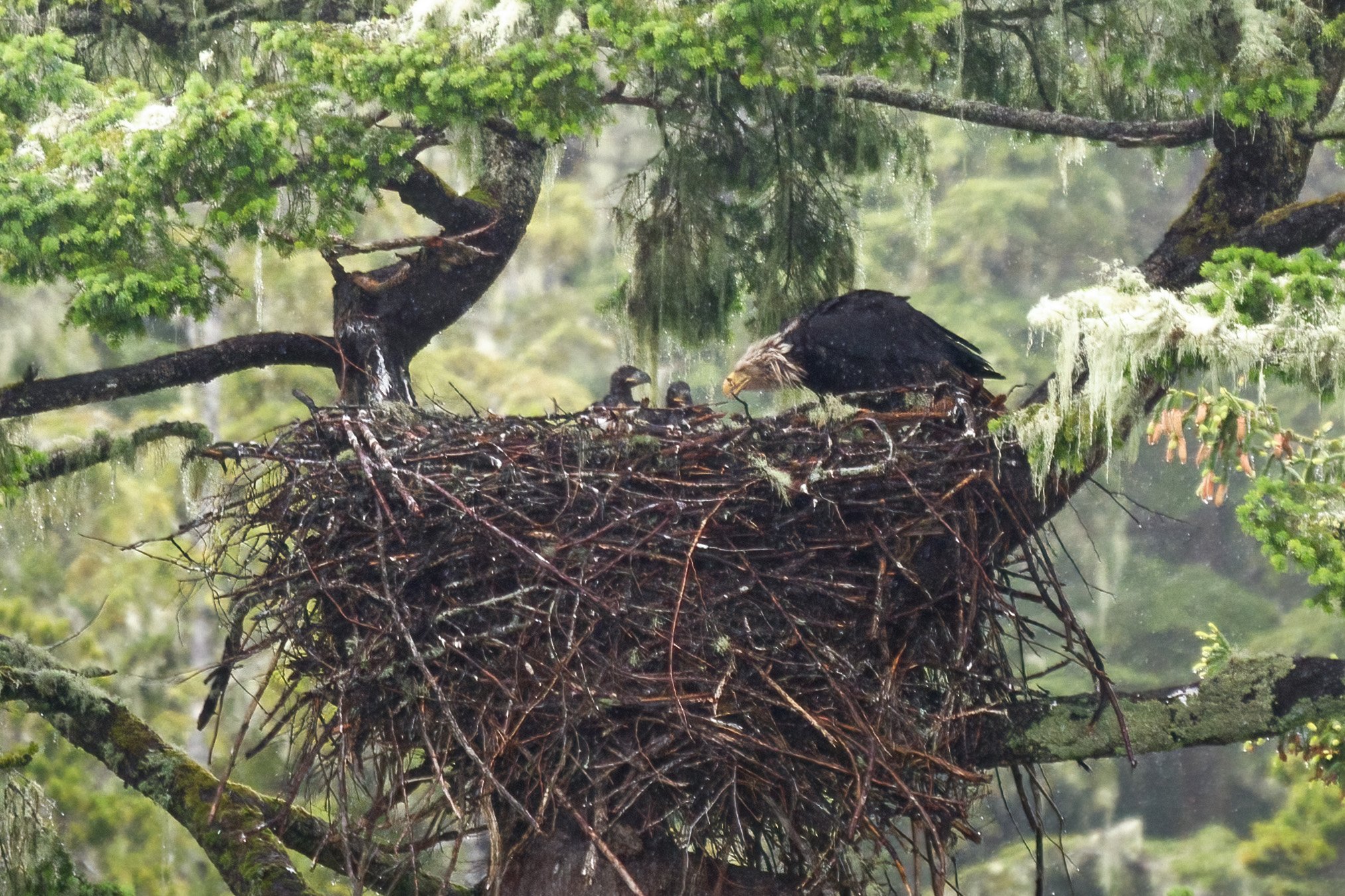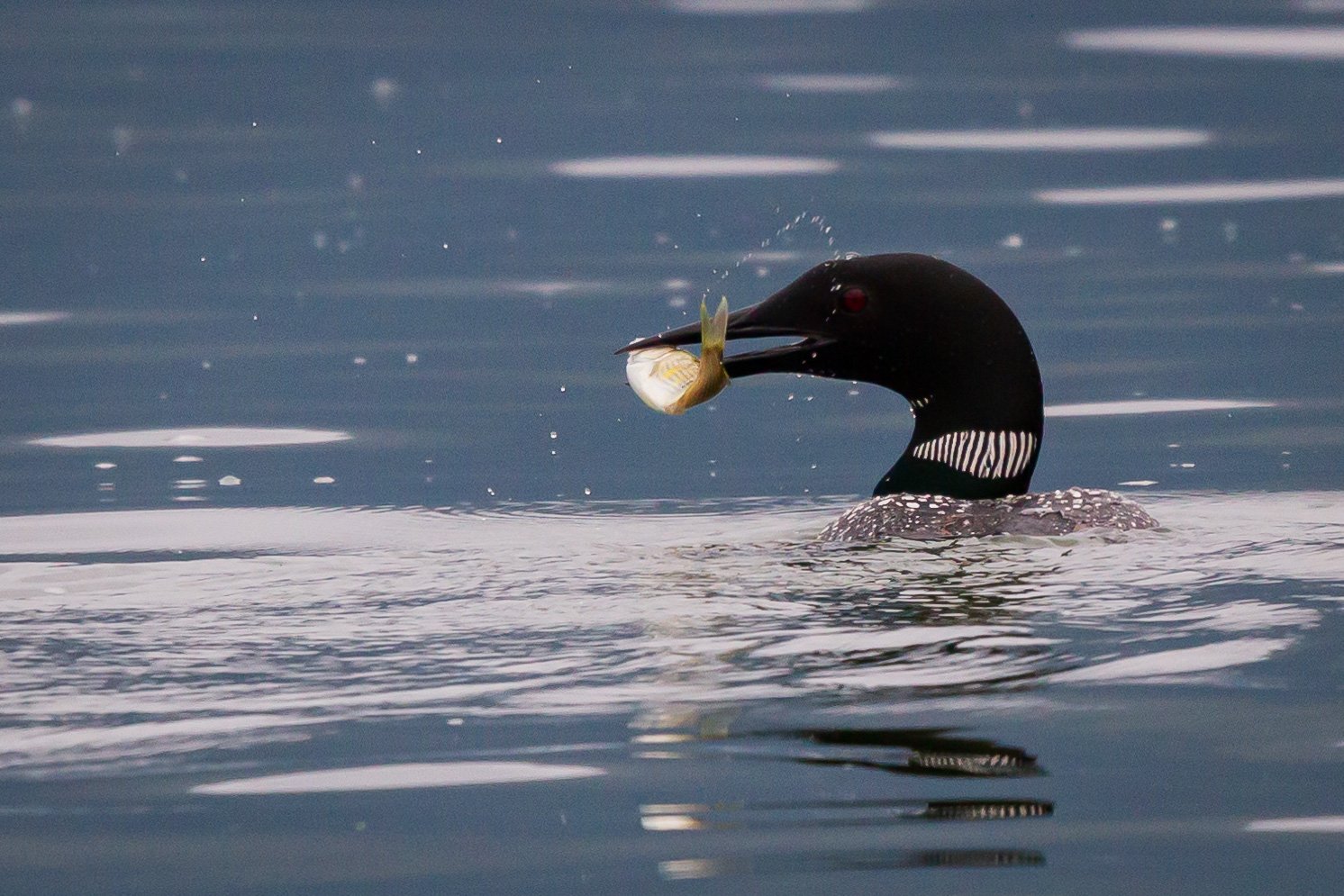Birding with Seasmoke Whale Watching
On every tour we do, we see a variety of amazing seabirds that inhabit the waters off British Columbia. While our tours are labelled as “whale watching”, it is impossible to not be impressed by the plethora of wildlife we see during the 3-hour tours. Your guides, Nate and Jeannine, are keen on finding and identifying birds with you, thus making this one of the only guided tours in BC looking at seabirds. Nate and Jeannine can often be found out birding during their holidays around the world.
Throughout the season, bald eagles, rhinoceros auklets and gulls are ever present. As the summer progresses, the species we see change, as some birds are up at their breeding sites and only show up once their chicks have fledged, and others we see during their migrations.
Early in the season (June), if you are lucky, we sometimes catch the tail of the migration, and can find species like the red-throated loon that typically inhabits lakes further north and in the arctic. Later on, marbled murrelets, ancient murrelets and Cassin’s auklets start to show up. The common murres time the fledging of their chicks with the height of summer, so by end of July/August we start seeing more and more common murres on the water, as well as the first glimpses of the rarer fork-tailed storm petrels. By mid-August through to end of the season, the hysterical sounds of the common murres are a constant backdrop on our tours. The rhinoceros aucklets grow in numbers too, and are often the driving force behind some of the spectacular feeding techniques that our whales display.
As the whale watching season winds down in September, the birds just keep growing in numbers as some of the migratory birds from up north start making their way down the coastline. Some seasons we are lucky to have large numbers of short-tailed shearwaters swooping around, and by end of September sometimes we occasionally see some of the winter inhabitants like Pacific loons or long-tailed ducks.
If you are a closet birder, or keen birder, we would be happy to help you ID some of the incredible species found in our food-rich waters that we operate in.



















